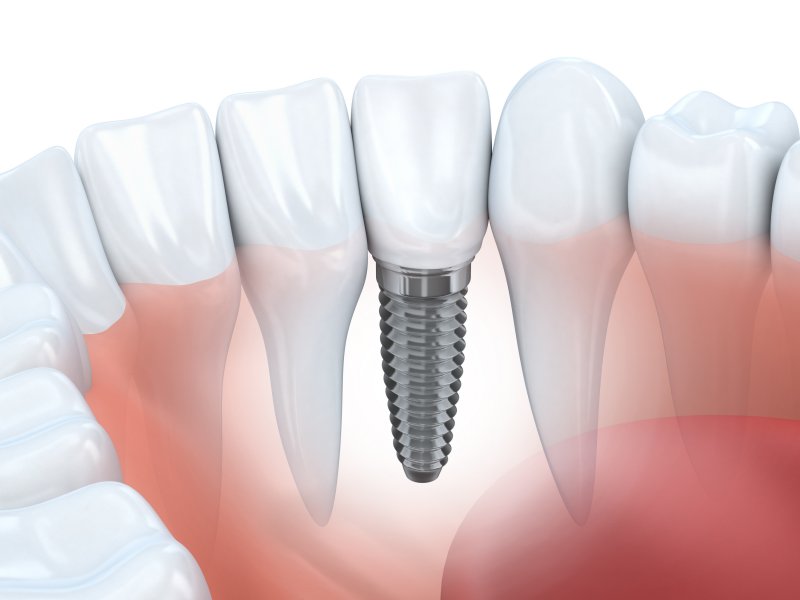Dental implants have become the standard in tooth replacement, and for good reason. They’re natural-looking, feel great, and don’t require excessive maintenance to take care of. They’re also incredibly durable. That said, while most people know that they tend to last, they may not be sure about how long they’re actually likely to stick around. If you want to know a little bit more about dental implants’ lifespan, here’s a little guide that can help you.
How Long Do Dental Implants Last?
Dental implants have a remarkably long lifespan. If well-maintained, they can easily last over thirty years. Even on the low end, over 95% of dental implants are still going after twenty years, so even with very minimal upkeep, you can still expect them to last for decades. Given their durability, low profile, and realistic feel, you might even forget that your dental implant isn’t your natural tooth!
The Common Causes of Dental Implant Failure (& How to Prevent Them!)
As mentioned, nearly all dental implants last for decades before needing to be replaced. However, there are two notable reasons that an implant might fail. While unlikely, it’s good to know what they are so that you can prevent disaster.
The first happens soon after the initial procedure, while the dental implants are healing into place. This process, where the jawbone grows back around the dental implant’s metal post, is called osseointegration. Failure of osseointegration can happen for several reasons, and its result is that the dental implant comes loose. Most will be able to handle the recovery from the surgery without issue, but people with an impaired healing capacity might have problems. If you have diabetes, are on medication for an autoimmune disorder, or might have a compromised immune system for another reason, mention this to your dentist so that they can come up with a specialized treatment plan for you.
The other reason an implant can fail is due to an infection. Gum disease can creep its way into the area of the jawbone that holds the dental implant in place. In advanced cases, this can cause bone loss, causing the dental implant to fall out of its position. This type of infection is known as peri-implantitis. Fortunately, gum disease has to become incredibly severe before it reaches this point. A daily brushing routine, along with flossing, can easily prevent peri-implantitis.
The wonderful thing about dental implants is that it doesn’t take much to maintain them. If you’re using them as a tooth replacement option, you’re bound to be happy with your choice for a long time to come.
About the Author
Dr. Edward Dooley has been practicing dentistry for over 40 years. He feels privileged to have helped so many people improve their oral health through dedicated, one-on-one care. He’s also proud to be able to complete every part of the dental implant process, from manufacture to installation, under one roof. Dr. Dooley is a graduate of the University of Pennsylvania School of Dental Medicine, and he’s a Fellow of the International Congress of Oral Implantologists. If you have any questions about the lifespan of a dental implant, he can be reached at his website or by phone at (732) 974-2288.



